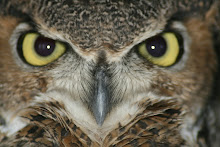Many raccoons have come to the Bay Beach Wildlife Sanctuary this
summer, but there was one that stood out from all the rest. Based on the
information given to us by the person who brought it in, this raccoon was about
six weeks old. At this age, a healthy raccoon is fully furred, the markings are
becoming more distinct, and the raccoon will begin to eat solid food. However, this
raccoon, named Princess, was practically hairless, had a belly about the
size of a grapefruit, suffered from diarrhea, and rarely stopped crying out.
Most of these symptoms were caused by malnutrition. It turned out that the
person who found Princess kept her for about a month. Princess is just one
example of why it is important to take any injured, ill, or orphaned wildlife
to a wildlife sanctuary or licensed rehabilitator where there are people that are trained and licensed to take care of
them. Trained rehabbers know how to properly take care of wildlife and raise
them in order to prepare them to be released successfully back into the wild.
Malnutrition
is not the only challenge for untrained/unlicensed people who keep wildlife. Caring for wildlife can be risky due to the possibility of
transmitting diseases, such as rabies and parasites. Plus, there is always the chance that the
animal could become imprinted or habituated if it is not around others of its own kind. Also, it is
actually illegal to keep wildlife for more than 24 hours. This time is supposed
to be spent finding a wildlife sanctuary or rehabilitator to take the animal to. Although
people may think they are helping the injured, orphaned, or ill wildlife that
they find, keeping the animals to raise on their own can do more bad than good.
The Bay Beach Wildlife Sanctuary is here to not only provide a place for animals that need a second chance, but to also help others help wildlife! If you want to become a wildlife rehabilitator, the best way to start is by volunteering with a local facility or rehabber-- they would appreciate the help! Contact your state Department of Natural Resources wildlife rehabilitation liaison and find out how you can start the work of obtaining your own license as well! The Bay Beach Wildlife Sanctuary offers volunteer opportunities and internships in the wildlife rehabilitation/animal care department. BBWLS also has a training for interested wildlife rehabilitators every March! Watch for the date on our website BayBeachWildlife.com and help us give critters like Princess a second chance!
The Bay Beach Wildlife Sanctuary is here to not only provide a place for animals that need a second chance, but to also help others help wildlife! If you want to become a wildlife rehabilitator, the best way to start is by volunteering with a local facility or rehabber-- they would appreciate the help! Contact your state Department of Natural Resources wildlife rehabilitation liaison and find out how you can start the work of obtaining your own license as well! The Bay Beach Wildlife Sanctuary offers volunteer opportunities and internships in the wildlife rehabilitation/animal care department. BBWLS also has a training for interested wildlife rehabilitators every March! Watch for the date on our website BayBeachWildlife.com and help us give critters like Princess a second chance!







No comments:
Post a Comment